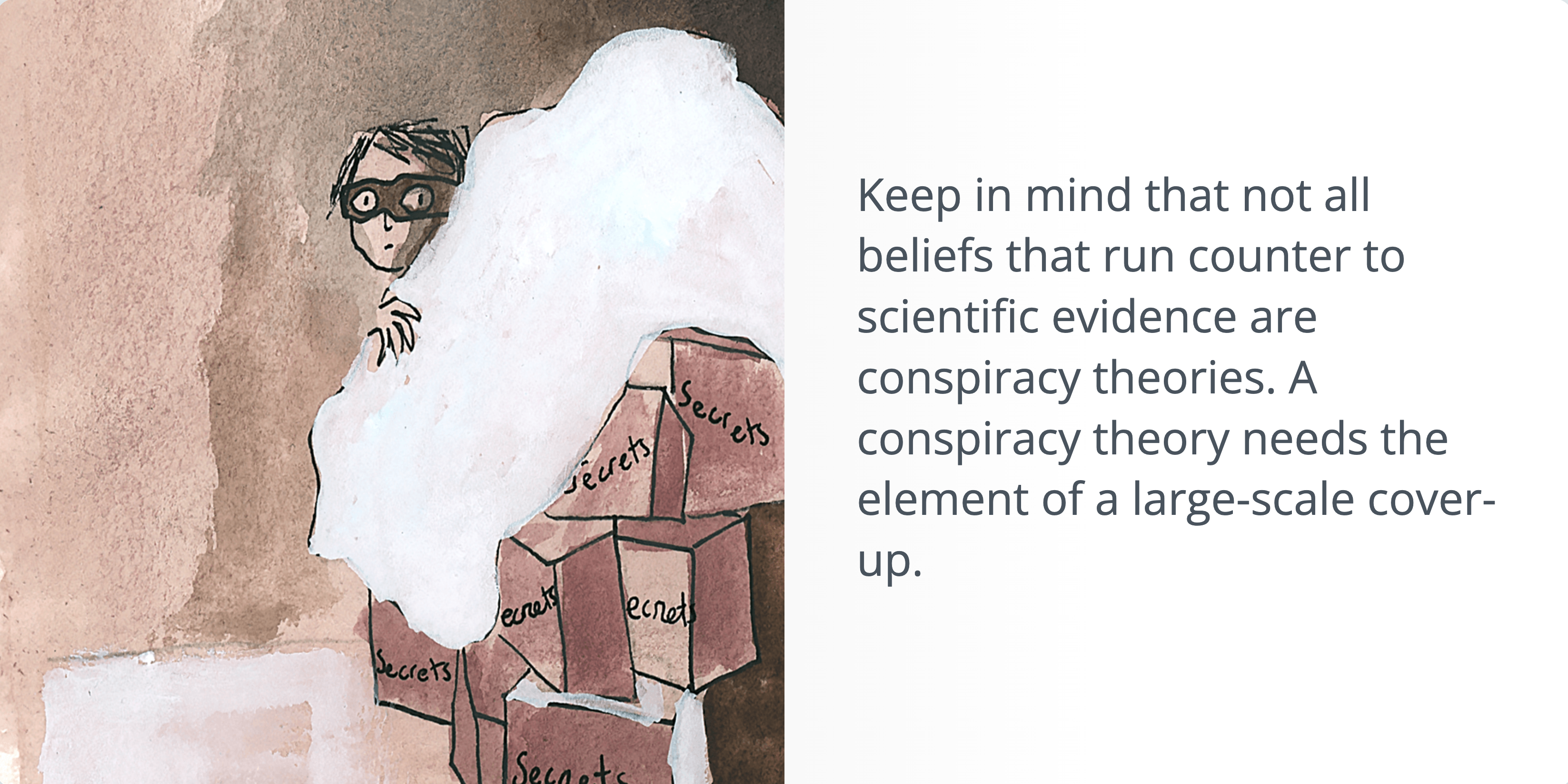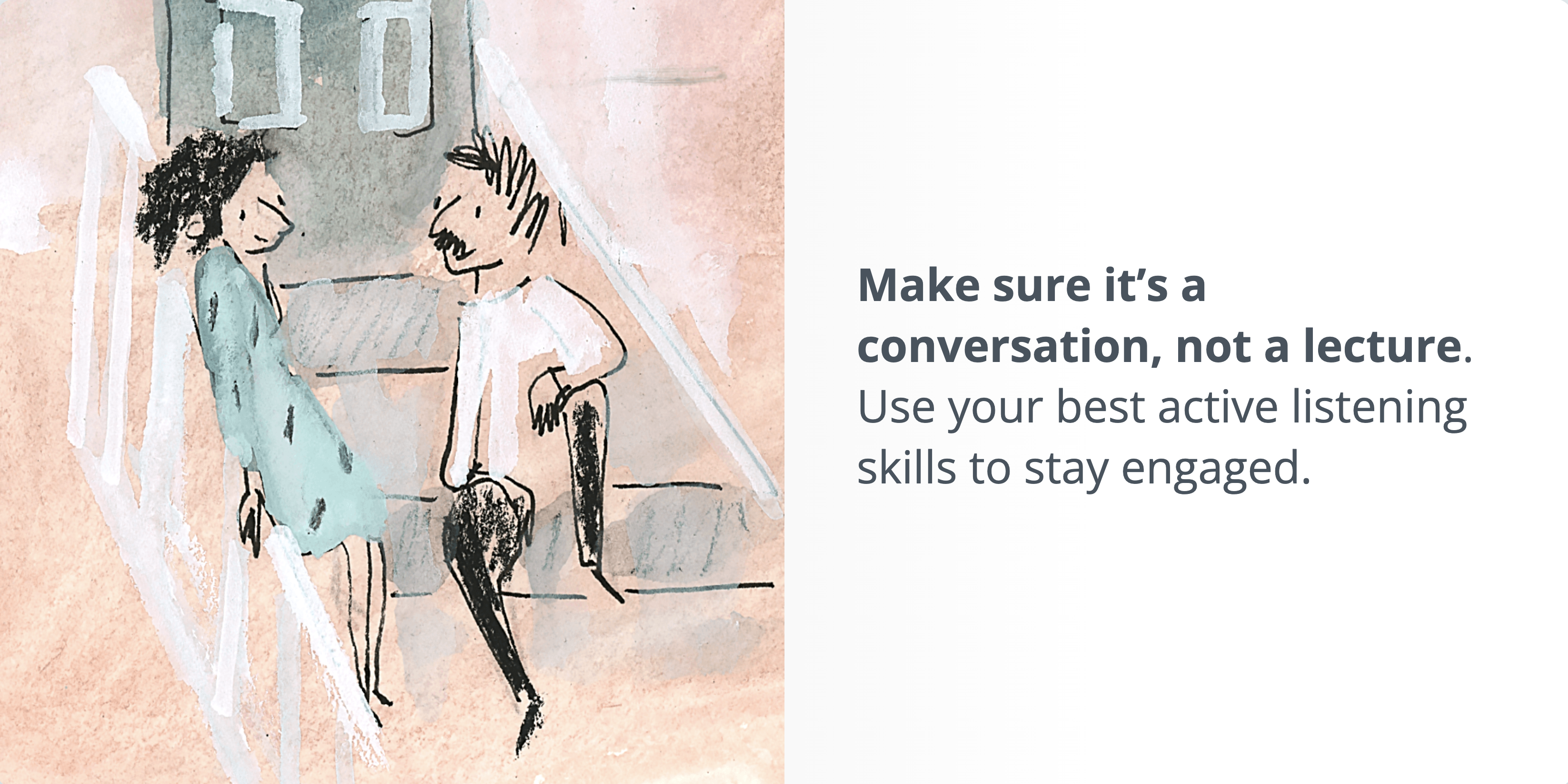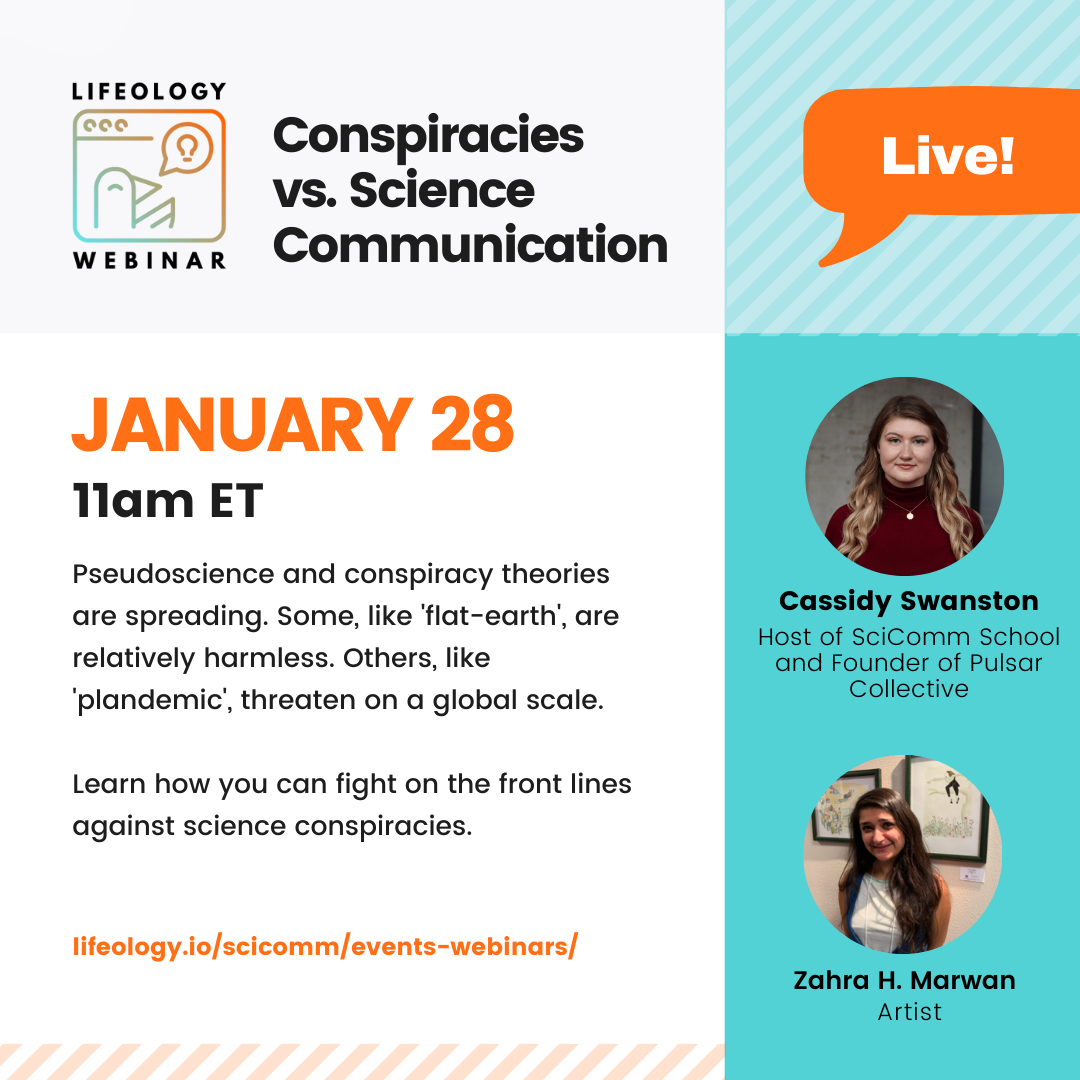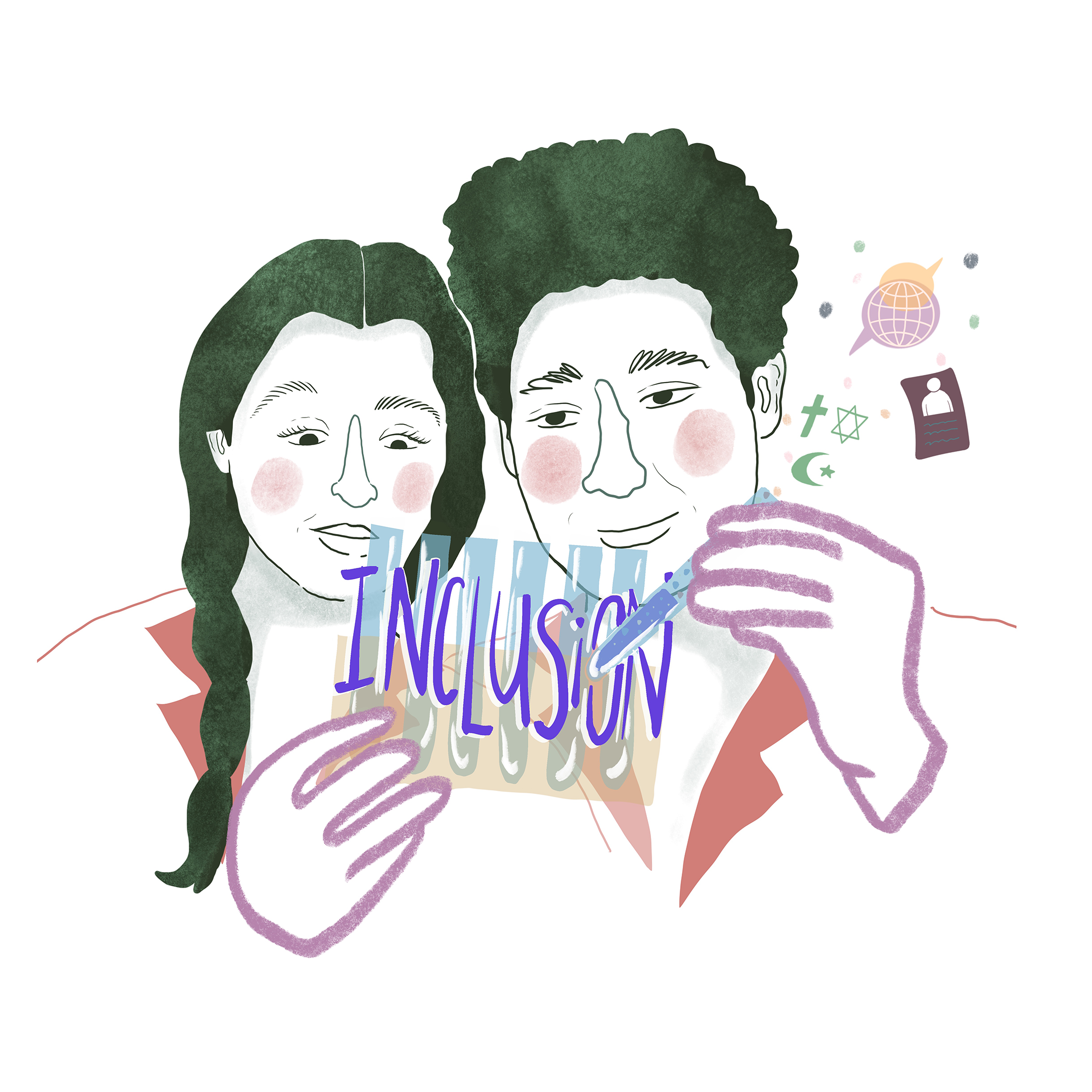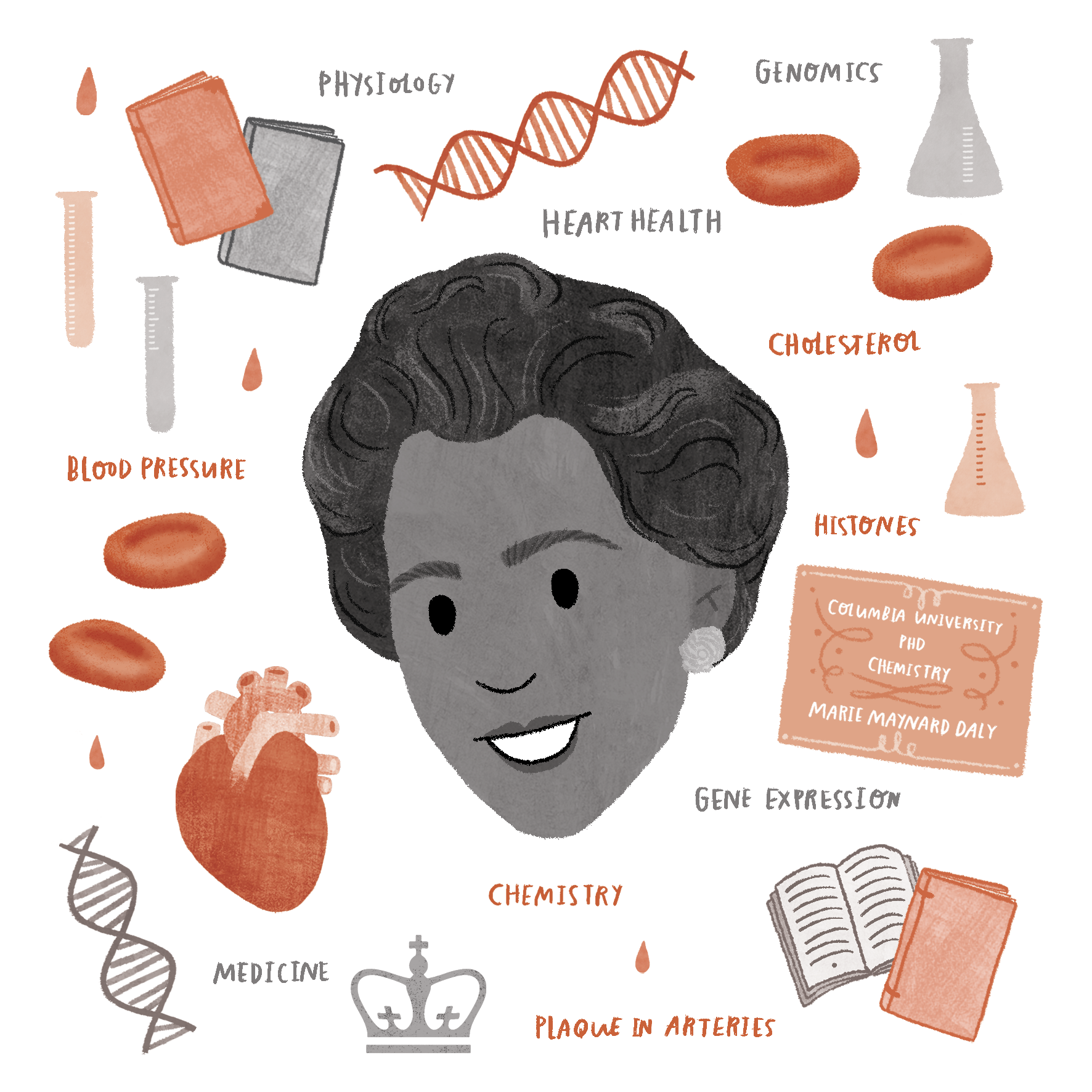The Lifeology SciComm Program has a new flashcard course to help people learn about addressing conspiracy theories as a science communicator! Learn how to use empathy and build trust to address conspiracy theories.
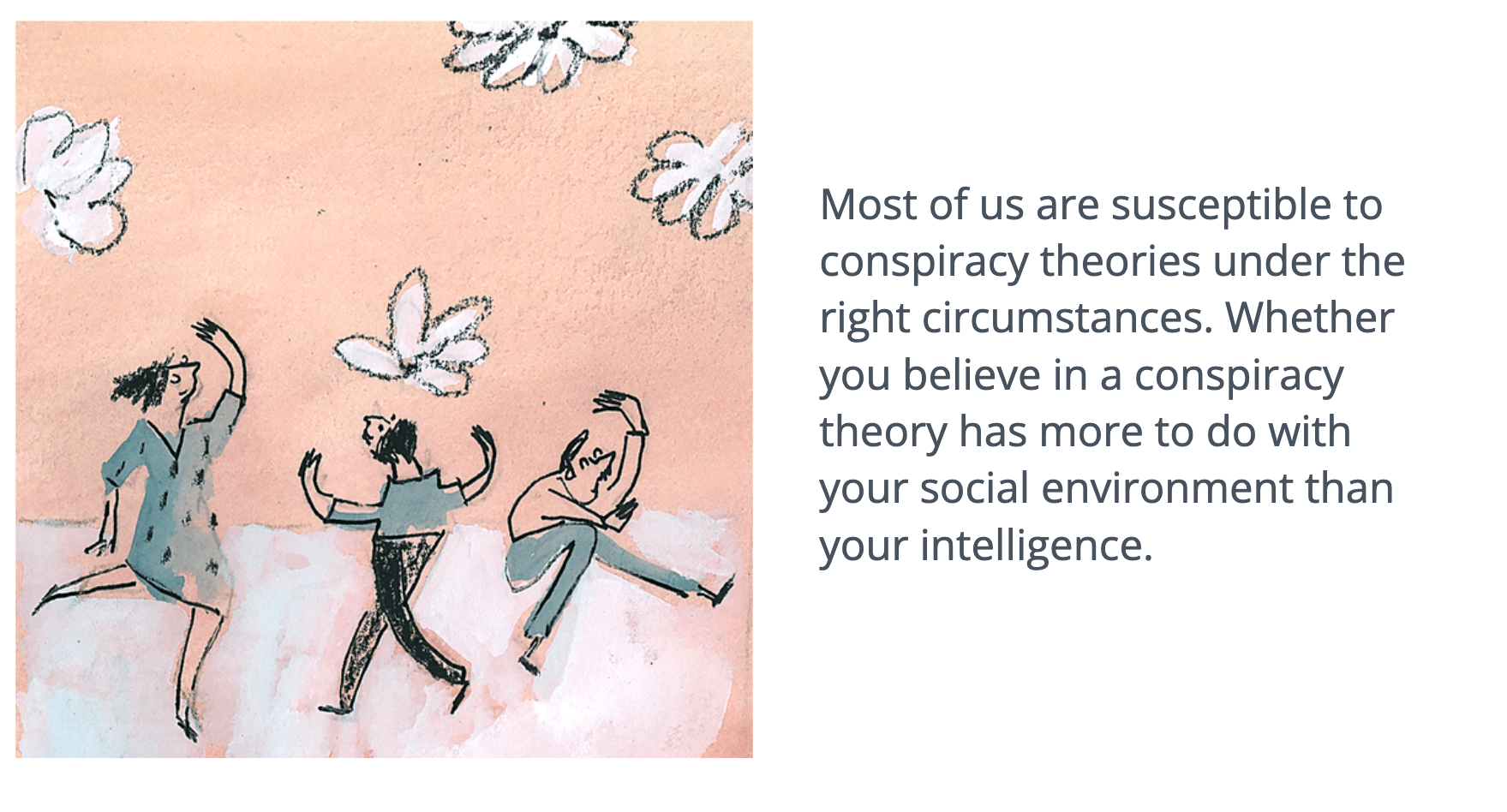
Screenshot from the “How to Address Conspiracy Theories” course. It reads, “Most of us are susceptible to conspiracy theories under the right circumstances. Whether you believe in a conspiracy theory has more to do with your social environment than your intelligence.”
Cassidy Swanston and Zahra H. Marwan are the creators of our new course “How to Address Conspiracy Theories.” Cassidy is a science communicator at the University of Ottawa and the host of SciComm School: the Podcast! Zahra is an award-winning artist currently living in New Mexico, U.S.
Courtney and Paige first heard a presentation from Cassidy about conspiracy theories at Science Talk 2021. We immediately knew a Lifeology course on the topic would be an incredible addition to the Lifeology SciComm program library—and who better to write it than Cassidy? And we are so glad it worked out!
Screenshot of a card from the “How to Address Conspiracy Theories” course. It reads, “Keep in mind that not all beliefs that run counter to scientific evidence are conspiracy theories. A conspiracy theory needs the element of a large-scale cover-up.”
About the Course
“How to Address Conspiracy Theories” tackles misconceptions about people who believe that secret and coordinated plans are being conducted by a powerful group of people. In the course, learn helpful tactics for communicating with people who believe in one or more conspiracy theories. Many of these theories are harmless, but some are not! When’s the last time you talked with someone who subscribed to a conspiracy theory? It might not have been that long ago, and maybe you did not know how to communicate to that person about it. Now you will!
People who believe in conspiracy theories are not uneducated or ignorant. Oftentimes, they are trying to make sense of feelings of confusion or uncertainty. They may also feel isolated and untrusting. Believing in a cover-up or secret plot may give these people a feeling of control that they need. Subscribing to a conspiracy theory may also provide a support system for someone who feels isolated. We are all susceptible to believing in conspiracy theories under the right circumstances.
Screenshot of a card from the “How to Address Conspiracy Theories” course. It reads, “Make sure it’s a conversation, not a lecture. Use your best active listening skills to stay engaged.”
Aim to understand more about people who believe in conspiracy theories. Make fewer assumptions. In other words, a large component of addressing conspiracy theories is having empathy! Empathy is the beginning of the solution. Storytelling and building relationships can also help build trust and improve communication efforts.
I won’t give all the tips and tricks away. You’ll have to check out the course for yourself!
A Webinar
And if you want to learn even more about communicating about conspiracy theories, you’re in luck! On January 28th at 11am ET, we have a Lifeology live webinar! The webinar, “Conspiracies Vs. Science Communication” is also presented by Cassidy and Zahra.
Learn how you can fight on the front lines with your SciComm skills in this month’s webinar. You can register now.
Want to check out more SciComm courses? Head on over to this page now to view the 15 and counting other SciComm courses we offer.
